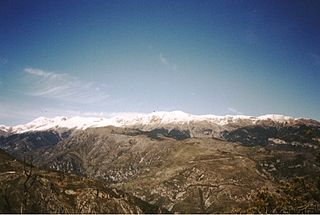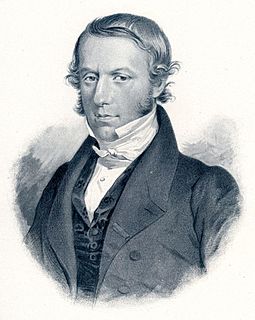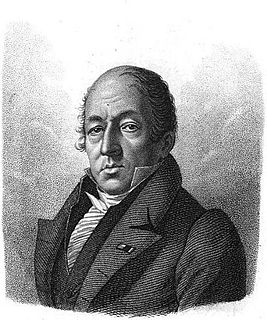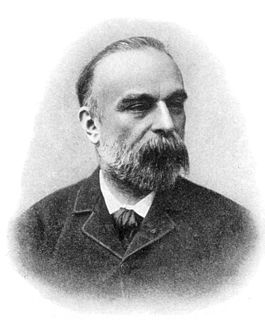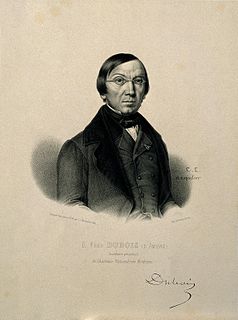François-Emmanuel Fodéré (8 January 1764, in Saint-Jean-de-Maurienne – 4 February 1835, in Strasbourg) was a French forensic physician.

Saint-Jean-de-Maurienne is a commune in the Savoie department in the Auvergne-Rhône-Alpes region in south-eastern France. It is a sub-prefecture of the department.
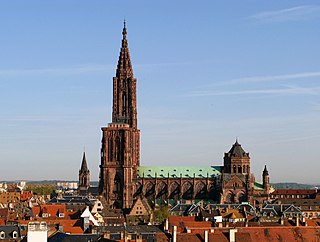
Strasbourg is the capital and largest city of the Grand Est region of France and is the official seat of the European Parliament. Located at the border with Germany in the historic region of Alsace, it is the capital of the Bas-Rhin department. In 2016, the city proper had 279,284 inhabitants and both the Eurométropole de Strasbourg and the Arrondissement of Strasbourg had 491,409 inhabitants. Strasbourg's metropolitan area had a population of 785,839 in 2015, making it the ninth largest metro area in France and home to 13% of the Grand Est region's inhabitants. The transnational Eurodistrict Strasbourg-Ortenau had a population of 915,000 inhabitants in 2014.
In 1787 he received his medical doctorate at the University of Turin, then by way of a scholarship from Victor Amadeus III of Sardinia, he furthered his education in Paris and London. Afterwards, he enlisted in the Army of the Alps, and took part in the sieges of Marseille and Mantua. [1] He taught classes in chemistry and physics in Nice, where he also worked as a physician at the municipal civilian and military hospital. Around 1804 he was named physician at the Hôtel-Dieu and the lunatic asylum in Marseille. In Marseille he maintained these and other positions for ten years. In 1814 he was appointed professor of medical jurisprudence at the University of Strasbourg. During the latter years of his life he suffered from eye disease, affecting his ability to read and write; thus his daughter wrote under his dictation. [2] [3]

The University of Turin is a university in the city of Turin in the Piedmont region of north-western Italy. It is one of the oldest universities in Europe, and continues to play an important role in research and training. It is steadily ranked among the top 5 Italian universities and it is ranked third for research activities in Italy, according to the latest data by ANVUR.

Victor Amadeus III was King of Sardinia from 1773 to his death. Although he was politically conservative, he carried out numerous administrative reforms until he declared war on Revolutionary France in 1792. He was the father of the last three mainline Kings of Sardinia.

The Army of the Alps was one of the French Revolutionary armies. It existed from 1792–1797 and from July to August 1799, and the name was also used on and off until 1939 for France's army on its border with Italy.

